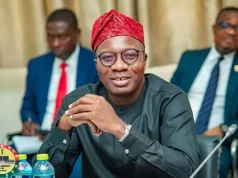Ghanaian artiste Pope Skinny has spoken on the migration of Ghanaian artistes to the West.
The Hiplife star in an interview on Accra 100.5 FM on Wednesday, October 9 lamented the challenges musicians face in Ghana’s music industry.
According to Pope Skinny, the government is not doing enough to support and sustain artistes in the country, hence the reason some migrate to the West to in some instances take up menial jobs.
He revealed that he is currently a truck driver in America.
“I drive a big truck in America,” Pope Skinny revealed. “I cannot do it in Ghana because I will be mocked.”
The Hot Cake hitmaker emphasised: “Since the leaders don’t really think about our welfare in this country, we’ll leave and go do jobs that may be below us – at least no one will see as doing it.”
He bemoaned the inadequate long-term frameworks for the creative arts sector, which makes life unbearable for musicians.
“There is nothing in this country to secure the future of musicians,” he lamented.
“This is why you’ll see creatives who are needy and asking for funds, especially in their old age. It’s not that they are irresponsible.
“Our job doesn’t even come with SNNIT contributions,” he added.
“If you look at all these, you’ll advise yourself, leave and go pay your social security contributions in the West, where the scheme is not corrupt, and they’ll take care of you till you die,” Pope Skinny said.
“If you don’t have a hit song, you will go hungry. Even if you save money, you’ll end up using the savings for paying music videos, and other logistics. Even if you get endorsement deals, how often will they come? Not everyone gets it too,” he stated.
Pope Skinny further opposed the Food & Drugs Authority (FDA) ban on alcohol endorsement by celebrities which was recently upheld by the Supreme Court.
“It doesn’t make sense to me,” he exclaimed, noting the immense financial benefits celebrities received in the days before the 2015 ban.
Pope Skinny recounted how he and other musicians benefited from deals with top local alcoholic beverage brands back then before the ban.
He said this helped to keep the entertainment industry vibrant and productive.















